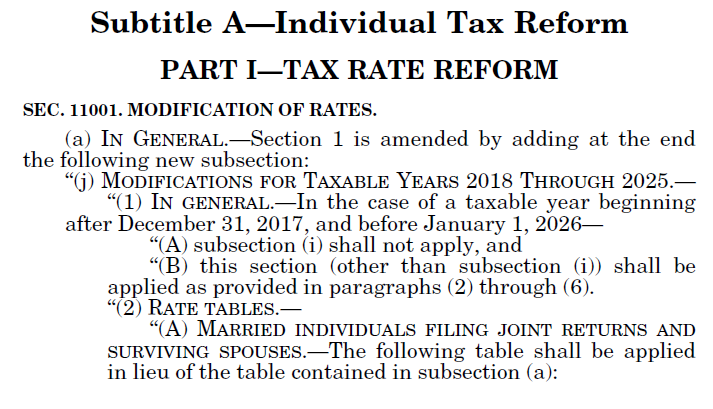I try to remain as non-partisan as possible, but this election outcome does have an impact on your taxes.
Earlier this month, major news outlets officially announced the House of Representatives will be
maintained by Republicans. This means Republicans will have an executive and legislative trifecta when
it comes to re-assessing and re-writing tax law – which needs to be done by the end of 2025 or current
tax law will expire.
When Republicans controlled the executive and legislative branches in 2017, they passed the Tax Cuts
and Jobs Act, which gave us the primary tax code that we see today. The changes are too numerous to
detail in this short email, but there are 4 themes that jumped out from that change back in 2017:
- Higher Standard Deduction – Ultimately, this saved some taxes for many lower-and middle-
income taxpayers. However, it created an environment that made us need to be more strategic
with charitable giving in order to receive tax benefits. It also capped our state and local tax
deduction to $10,000 – which increased the tax burden on many upper-middle income
taxpayers. - Decreased corporate tax rate – Most of us are not directly affected on our tax returns by the
decreased corporate tax rate. HOWEVER, to make sure the corporate tax rate cut benefitted not
just corporations but also pass-through entities and sole proprietors — looking at you side-gig
worker and after-school private tutors — the QBI (qualified business income) deduction
emerged. In short, for most Americans, this translated to a 20% deduction for qualified business
income. If you’ve earned 1099 income in the past few years, you’ve likely benefited from the
QBI deduction. - Section 179 & Bonus Depreciation – Essentially, this allows businesses that are small enough to
expense property in the year of purchase rather than depreciate it. This means more tax savings
earlier on for many small businesses. There are substantially more details here, but this is the
main idea. - Higher Estate Tax Exemption – In 2017, the estate tax exemption (the amount of assets that can
get passed from a decedent to their heirs without incurring estate tax) was raised substantially
and indexed for inflation. In 2025, the estate tax exemption will be $13.99 million. This means
most Americans don’t have to worry about paying estate tax in the near-term and medium-term
future as this higher estate tax exemption will likely continue.
While we still need to see what new tax law will pass through Congress in 2025, for now, it likely will
involve more of the same. The Standard Deduction will likely stay high (a good thing for most people)
and tax rates will likely remain similar to what they’ve been over the past several years. Tax planning
probably doesn’t need to change too much for charitable givers. There are incentives to support small
business owners and 1099 income-earners. Further, the estate tax exemption will likely stay high, so for
most Americans, they won’t pay any estate tax upon their passing. However, executors of decedents
with surviving spouses will still want to elect DSUE portability on Form 706 to “lock-in” this higher estate
tax exemption for surviving spouses.
As always, if you have any questions and want to talk about tax planning, or if you know of someone
who might benefit from tax planning and preparation, don’t hesitate to reach out: ryan(at)ifptax.com

